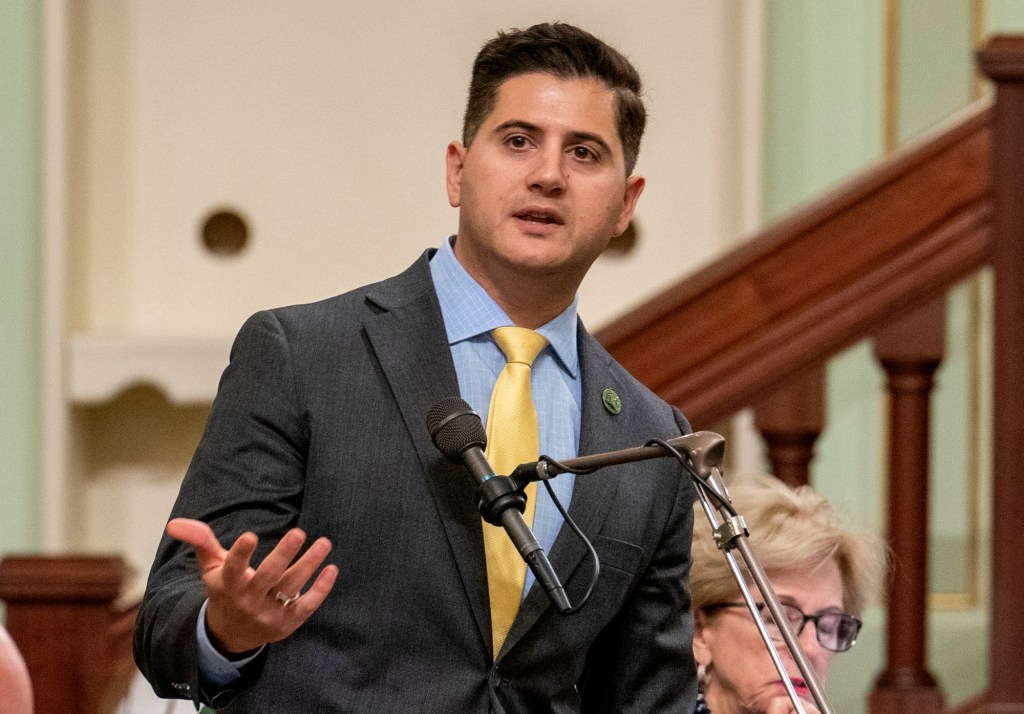
President Trump’s recent Executive Order, “Strengthening and Unleashing America’s Law Enforcement to Pursue Criminals and Protect Innocent Citizens,” included a section titled “Holding State and Local Officials Accountable.” But worrisome events in Los Angeles suggest that the Trump Administration’s emphasis on government accountability is quite selective.
Earlier this year, a jury found Los Angeles County Sheriff’s Deputy Trevor Kirk guilty of felony deprivation of rights by use of excessive force. As explained in a subsequent press release, Deputy Kirk overreacted when a woman recorded an arrest he was executing: Kirk attempted to grab her phone, threw her face-first on the ground, pressed his knee into her neck, threatened to punch her, and pepper-sprayed her twice in the face. Kirk then used his department-issued radio to give a misleading account of the incident, stating he was in a fight.
But Kirk’s punishment is uncertain. After Trump appointed Billy Essayli as Interim U.S. Attorney, the pursuit of accountability apparently yielded to the corrupting influence of the powerful law enforcement lobby, which had fiercely opposed Kirk’s prosecution. Kirk’s conviction could have led to a prison sentence of as much as ten years, but Essayli is now asking the court to set aside the jury’s verdict and replace it with a unicorn—a post-conviction plea deal.
Essayli’s proposed plea deal is deeply troubling. The felony charge would be downgraded to a misdemeanor: That would drop Kirk’s maximum term of incarceration to a single year. But the prosecutor’s request for leniency doesn’t stop there. He recommends that Kirk shouldn’t serve a single day behind bars; instead, he’s seeking only a year of probation. This outcome would spare Kirk the loss of his Second Amendment rights and pave the way for his potential return to law enforcement.
Kirk must surely be grateful for Essayli’s activism, but those who favor accountability and public safety are presumably less enthused. There is no constitutional right to a plea bargain; judges must oversee and approve every single one, and U.S. District Judge Stephen Wilson could still stand as an obstacle to a potential deal. Surely Wilson knows his job is to ensure fundamental fairness, which includes ensuring that violent offenders are held accountable.
The Framers of our Constitution deliberately placed the power of criminal adjudication in the hands of citizen-jurors. Our founding document recognizes jurors as the ultimate arbiters in disputes between citizens and their government. When twelve members of our community identify criminal wrongdoing beyond a reasonable doubt, that verdict should not be treated lightly, let alone dismissed through a post-conviction political bargain.
In the early days of the Trump Administration, Kirk’s case was pursued in a rhetorical climate of law and order in which wrongdoers would be held accountable. But Essayli’s recommendations are in grave tension with the pronouncements made in court and in the aftermath of the guilty verdict.
Essayli’s actions undermine the integrity of the system: At least three Assistant United States Attorneys involved in the successful prosecution of Kirk resigned their positionsimmediately after Essayli filed his proposed plea deal. Perhaps they share the view that Essayli’s proposal looks more like the appeasement of a powerful lobby than the advancement of the rule of law.
Those who value the principles espoused in President Trump’s Executive Order, such as holding armed agents of the state accountable when they betray the public trust, must find Essayli’s proposal deeply disturbing. Judge Wilson now faces a difficult choice: a top prosecutor now asks him to do nothing more than slap the wrists of a corrupt public official. Essayli’s proposed deal would not only undermine the jury’s judgment, but it would send a chilling message that the scales of justice can be tipped by political winds and the influence of special interests.
In short, Judge Wilson’s decision will illustrate what justice really means in America in 2025. If he rejects Essayli’s proposal, he will demonstrate respect for the jury’s verdict and the rights of victims of police misconduct. Such a decision would reaffirm that in America, no one, regardless of their position, is above the law.
On the other hand, Wilson might accept Essayli’s plea deal, thereby communicating an entirely different set of values. That decision would not speak so much as scream.
Mike Fox is a legal fellow with the Cato Institute’s Project on Criminal Justice.



